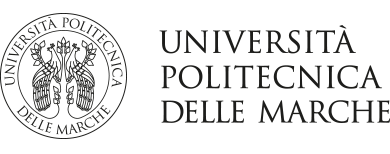
Università Politecnica delle Marche (UNIVPM) is a middle size Italian university, having about 17000 students and including five faculties (Engineering, Science, Economic Sciences, Medicine and Agricultural Sciences). UNIVPM has increased its presence at European level due to a high standard in research and industrial collaborations for research and development and innovation. The research team operating in the present project is included in the Department of Agricultural, Food and Environmental sciences (D3A) of UNIVPM. D3A includes 53 permanent staff (full, associate and assistant professors) and 28 technical and administrative staff. D3A carries out scientific research, university teaching and contract works in different research areas: agronomy, agricultural engineering and landscape, biochemistry, plant biology and forestry, chemical sciences, tree crops, agricultural genetics, food, industrial, and environmental microbiology, agricultural economic systems, physical sciences, food science and technology, soil sciences, animal production and plant protection.
The UNIVPM Plant genetic group, coordinated by Professor Roberto Papa has a wide expertise in plant genetic resources conservation, management and exploitation, participatory breeding strategies and citizen science experiments, plant phenotyping, pre-breeding activities, biodiversity conservation, population genetics and genomics, and evolutionary studies on legumes and cereal species.
Role in the Legume Generation project
UNIVPM will carry out reasearch on three legumes that are Lentil, Lupin (Lupinus albus and L. mutabilis ) and Common bean. Here, we will be involved in the characterization of relevant agronomic and/or nutritional traits, with the aim of identifying interesting material that are well adapted, and to support variety registration. UNIVPM will also contribute to the development of new populations (composite crosses in lentil and MAGIC population in common bean), in order to explore the potential and the phenotypic variability within these populations, and to test in lentil a genomic prediction model derived from the INCREASE project.


